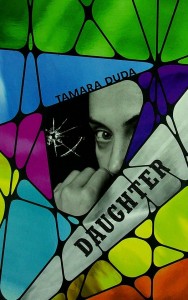Daugther

Опис
This book is about love. It does not contain a single word beginning with ‘lo…’, but it is still about love. It is about magic: not the cheap kind you see on TV screens, but the real kind, the kind that stems from your tribe and from your roots, the kind that has you diving headfirst into the Primordial Sea and surfacing with a fish between your teeth. It is about courage, too: about the out-and-out courage to claim what is rightfully yours, to recognise it, to dig in your heels, and never give away to anyone what is yours: your home, your motherland, your heart, your right to walk with your head held high.
The events of the novel unfold in the spring and summer of 2014 in Donetsk. Donbas is the epicentre of events; it is a place of strength where the country’s most important questions arise. And it is only there that the necessary answers are hidden. There, where it all began, is where everything will come to a close, after the story passes through yet another cycle and we follow the coils infinite Ouroboros serpent to where it once again bites its own tail. It is here that the novel’s nameless heroine loses her family, home, job, and illusions of reality, and it is here that she gathers up the fragments of her life and discovers new meaning and finds new allies. Step by step, the reader observes the process of transformation, the metamorphosis of the gatherer into a hunter. This book has forever changed the person who has written it and will likewise change whomever reads it. Because in war, you would eat the earth to survive. So why not feed the earth too?
The author calls her novel Daughter part of the Ukrainian war effort: “The heroine absorbs both what I personally have experienced and the experiences of many of the combatants, military volunteers, and displaced people whom fate has brought together. She has become a ‘stronghold’ for many people. ‘We shall live!’ says the heroine. ‘Indeed, we shall!’ I reply.”








 #
#


































